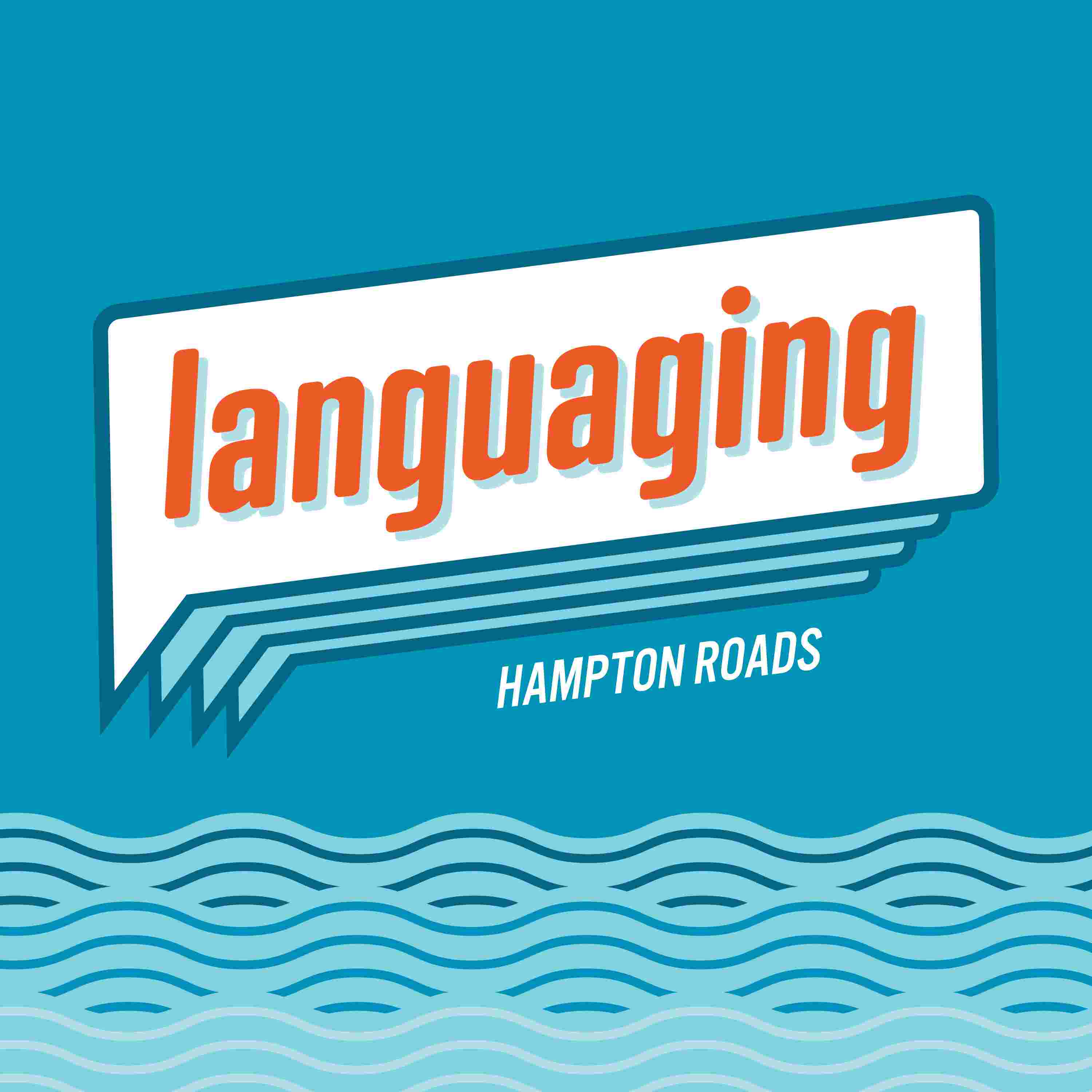

Title: Languaging in Hampton Roads
Episode 20: How to Talk Like a Revolutionary: Be polite!
Hosts: Jill Winkowski and Prue Salasky
Date: Oct. 31, 2025
Length: 43 minutes
Publication Frequency: Fourth Friday (approx) of each month
Colonial Williamsburg, the restored Colonial capital (until 1780) of Virginia lies at the northwestern edge of Hampton Roads, part of a historic triangle with Yorktown and Jamestown. Since it opened as “the world’s largest U.S. history museum” in the 1930s, it has been telling the story of the Founding Fathers and the American Revolution. To learn about all its tours, programs, activities and educational programs, go to www.colonialwilliamsburg.org.
In this episode we explore how CW’s use of 18th century language contributes to understanding the men and women who drove revolutionary change in the turbulent years before and after the American Revolution. We learn about the distinctive features of speech at the time of the Declaration of Independence, whose 250th anniversary is next year, 2026.
We talk to Cathleene Hellier, senior historian at the Colonial Williamsburg Foundation, who authored the book, “18th Century English as a Second Language” (2011, out of print). She discusses the hundreds of primary sources she used to understand how language has changed over the past 250 years and its significance.
We shared the book with humanities scholar Clay Jenkinson, host of Listening to America (formerly The Thomas Jefferson Hour) on NPR, https://ltamerica.org/
and the country’s best-known Thomas Jefferson impersonator. He details the textbook’s relevant points and describes his own literature-based method of conveying the thoughts of the nation’s third president.
CW’s Nation Builders program offers first-person interpretations of 18th century Virginians, both the well-known, such as Thomas Jefferson and George Washington, and the lesser-known, including a preacher, a teacher, and a barkeep, all of whose lives impacted the community.
We attended a Nation Builders performance at the Kimball Theatre, with Stephen Seals portraying James (Armistead) Lafayette, a formerly enslaved African-American who earned his freedom for his spying services for the Patriots during the Revolutionary War; and Robert Weathers, who represents George Wythe, a jurist, scholar, and signer of the Declaration of Independence.
Hellier addresses the difficulties in portraying African-American history in the Colonial period and details the extensive research she’s done into the language varieties of the time. She’s a contributor to enslaved.org, a database of information regarding enslaved people worldwide. She touts the importance of the Virginia Gazette newspaper as a source (digitized copies are available on the CW website, www.colonialwilliamsburg.org.) We’re reminded too of the newspaper resources collected by the Library of Virginia, https://www.lva.virginia.gov/collections/digital-collections
And the Valentine Museum in Richmond has a rich repository of African-American history, https://thevalentine.org/
Check out our website, languagingHR.wordpress.com. Send your feedback and questions to languagingHR@gmail.com. Visit us on facebook and Instagram, and be sure to like, follow, review! Thanks for listening!